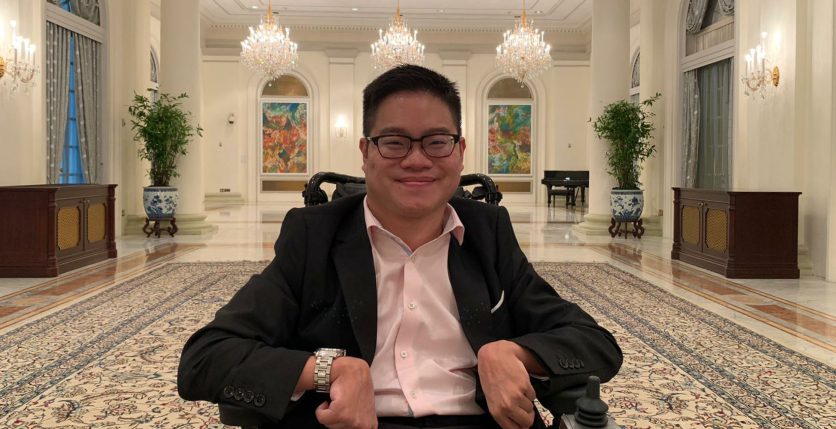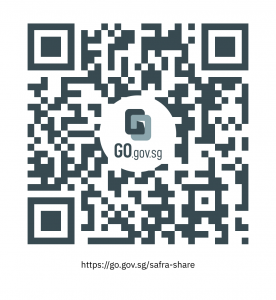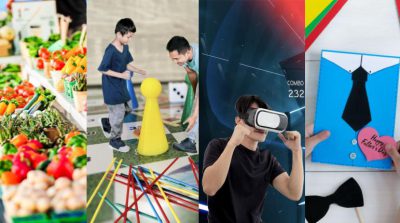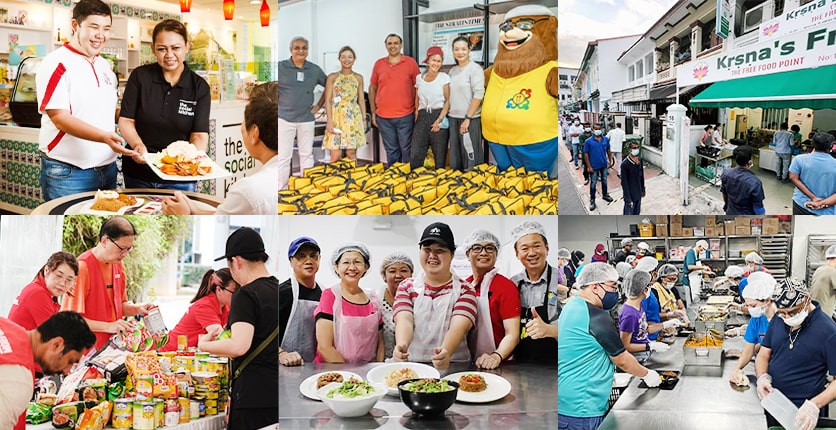You’ve probably heard of Community Chest, the philanthropy and engagement arm of the National Council of Social Service (NCSS). But have you heard of SHARE?
SHARE is a regular giving programme by Community Chest which enables donors to give on a sustained basis through hassle-free arrangements such as payroll, GIRO, or credit card transfers. 100% of donations are channelled to support over 100 Social Service Agencies (SSA), running 200 social service programmes and benefitting over 93,000 individuals.
Amongst the 260,000 individuals and 2,500 organisations contributing regularly to the SHARE Programme are full-time National Servicemen (NSFs), who’ve enrolled their contributions during their two years of service. Beyond the duty and commitment to defend Singapore, there is also the responsibility to serve the community and to help those who need it. These contributions by NSFs support key social services and programmes that empower individuals, families and communities in need – such as children with special needs and youth-at-risk, adults with disabilities, persons with mental health conditions, and seniors and families in need of assistance – to achieve their fullest potential, despite the challenges they face in life.
One example of such SSAs is AWWA, a social service agency which serves persons of different demographics across life-stages, by delivering a wide range of programmes and services. AWWA’s multi-professional team provides early childhood services and supports the integration and inclusion of children with developmental needs, families with complex social issues, the elderly, and persons with additional needs so that they may live out their various dreams and aspirations. We sat down with a beneficiary of SHARE and AWWA to find out how he’s been empowered through the help of AWWA and its funded programmes.
Alister Ong
Mr Alister Ong, who is born with cerebral palsy, is a recognised diversity and inclusion speaker in the Asia-Pacific region and a strong advocate for inclusive employment and community. He is currently the Lead for Diversity Equity Inclusion Client Solutions at multinational human resource firm Michael Page, a Board Member of Cerebral Palsy Alliance Singapore (CPAS) and part of the REACH Advisory Panel. Despite living with a disability and always being at the receiving end of help since young, life’s challenges did not deter this confident, jovial and engaging individual. Alister found empowerment at different life stages where he had benefitted from help in various forms, and shares with NSman how the network of SSAs and their funded programmes have played a part in his progress and positivity.
Q: Could you share with us the SSAs under Community Chest that you’ve benefitted from?
When I was younger, it was Rainbow Centre’s early intervention centre. After that, it was CPAS. Both have aided me in similar ways while growing up, whether it is for education or for therapy, they have always supported me.
Through the support of these programmes, I not only learnt how to be more independent and seen first-hand how they have advocated and championed for an inclusive environment and society, but I’ve also realised that there’s potential in every single person.
Q: Tell us more about your journey with AWWA?
I journeyed with AWWA from my primary school years and right through my university days. I was supported by the team at AWWA Community Integration Service (CIS), a programme that supports the integration of children and youth with additional needs in their schools and the larger community. The programme provided me with support such as occupational therapy and physical therapy, but also, educational guidance to guide me in terms of my educational pathways, and resources needed for me to excel in my studies and in the school environment. These included extra time allocated to complete my exams or school work, assistive devices and technologies, and modifications to the school environment. Therapists would also visit my school to share with the teachers how to be more inclusive when conducting their lessons and advise them on the types of accommodations that might be needed. Accommodations were made by locating my classroom on the ground floor or ensuring that washrooms were accessible.
Being different means that I am unique. There are unique strengths and abilities that I can give and contribute to others as well. I’ve learned and realised that persons with disabilities cannot expect to just receive, we must give as well. And that was when the support of the different programmes actually benefitted and helped me to gain confidence in who I am. It helps us to look beyond the disability, and to see the strength and the value that we can bring in our lives and to others in society.

Q: Can you share with us what other programmes are available at AWWA?
AWWA serves multiple people across life stages, from children, to young adults, to families and seniors.
Programmes for children include Early Intervention Continuum (EIC), which gives children with developmental needs and their families timely access to a spectrum of efficient, family- and child-centred early intervention (EI) services. Currently operating out of four centres, AWWA EIC services are effortlessly offered in a setting that is conducive to learning, working in tandem with the healthcare and educational systems to strengthen families and realise each child’s potential. In 2016, AWWA built Kindle Garden, Singapore’s first inclusive preschool for children of all abilities. Speaking of firsts, some may not know, but AWWA also operated one of Singapore’s earliest Family Service Centres (FSCs) way back in 1970. Today, AWWA FSC serves over 600 family units annually.
To promote inclusion, AWWA built its Senior Community Home (SCH) at Ang Mo Kio in 1976 for independent, destitute seniors. The SCH is unique, because it is housed within a HDB flat. The SCH serves 140 seniors annually, and AWWA has since expanded its support for seniors in the Ang Mo Kio vicinity by operating services like a Rehab and Day Care Centre, and a Dementia Day Care Centre too.
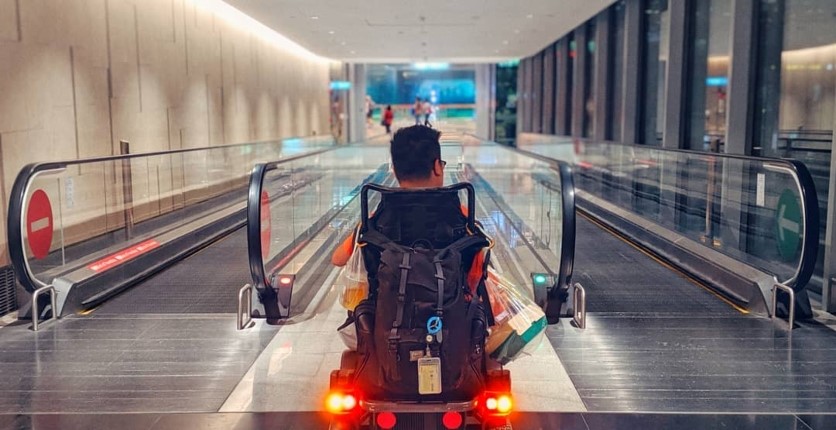
Q: What were the biggest challenges you had faced during this journey?
There are many challenges in life. When I was younger, Singapore was not as accessible as it is today. There were physical barriers, for example, taking the public transport was very hard for me. Train stations did not have lifts. Buses did not have ramps. My mother and helper would have to push me using the stroller, push up the escalator and up and down the escalator if we wanted to take the train.
On a broader perspective, there’s also the societal challenge faced by the community with disabilities – how are people actually understanding what disability is? How can people learn how to interact with someone with disability? What can we do socially? How can we be not awkward about it? How can we talk in a way that is honouring and respectful, but at the same time, to talk about these kind of topics and areas and not shy away from them?
Q: You have travelled to many countries and given talks on diversity and inclusion that have inspired many like you who face challenges of their own. What was your most memorable experience when giving those talks?
I think the most memorable one was last year (2022) when we had the National Council of Social Service (NCSS) Social Service Summit in Marina Bay Sands. NCSS had launched the Social Service Strategic Trust (4ST), a 5-year sector road-map, and in the room there were a few thousand sector leaders present at the event. I was there to give the keynote speech and be part of the panel together with Mr Desmond Lee, Minister for National Development & Minister-in-charge of Social Services Integration and Ms Anita Fam, President of NCSS.
When I was younger, I was a different person when I had to present to a big group of people. My teacher would remark on my lack of eye-contact with the audience. When I stood before a few thousand people; leaders and sector professionals to speak about the topic of empowerment, I felt like I have completed a full circle. It was an incredibly heart-warming and pleasant moment. I had the opportunity to express my gratitude and appreciation to everyone on behalf of the service users, emphasizing how much we value everyone in the (social service) sector. Additionally, I aimed to demonstrate the tangible outcomes resulting from their hard work, assuring them that their efforts have not been in vain. These achievements are the direct result of the seeds they have sown in our lives.
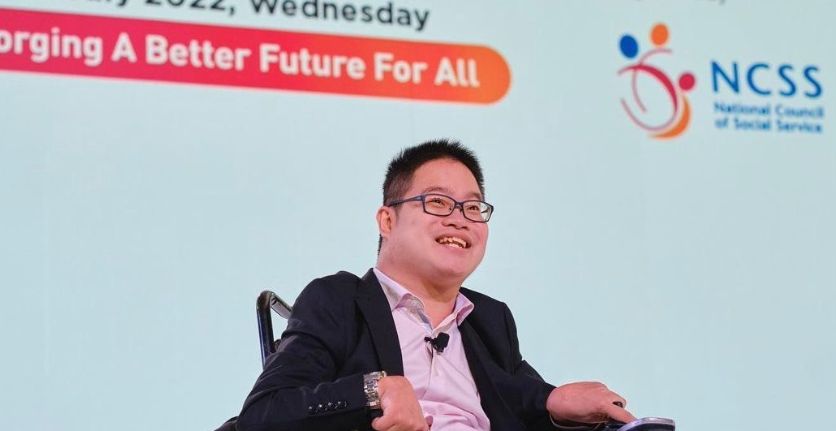
Q: You had previously emceed at The Purple Parade in 2020 and 2021, and also held the vice-chairperson role for the movement. Can you share with us more on the role and responsibilities of the vice-chairperson of the Purple Parade?
The vice-chairperson’s role is to lead the working committee and work together to look at how we can use the Purple Parade to continuously celebrate the abilities and support inclusion of persons with disabilities in everyday living and work, in school and in play, and in every single area of our lives.
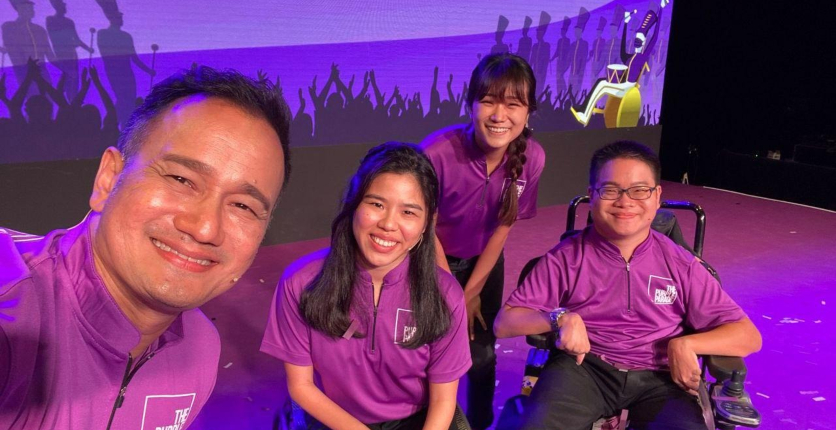
Q: If you didn’t have the support of the SSAs back then, where do you think you’ll be today?
The support of SSAs and the community has played a crucial role in shaping my journey. Without them, I might not have reached where I am today and could have been on a more challenging and uncertain path. The experience that the SSAs have now developed from many years of assisting individuals with disabilities has resulted in improved programs that have greatly influenced my personal development. Their guidance, tips, and best practices have significantly shortened my learning process and made it smoother.
Q: What are your hopes for a truly inclusive Singapore?
I think all of us can play our part in society. Persons with disability – that person is a child of a parent, a parent of a child, or brother or sister, and a fellow Singaporean. All of us can do our part to show care, compassion, and empathy towards each other. But at the same time, we can empower these individuals by giving them the strength and courage to reach their fullest potential.
Join the movement and become a true advocate for inclusion and diversity! Your actions can create a lasting impact that changes lives. By sacrificing small indulgences like the cost of a gourmet coffee or a cup of bubble tea, and committing to regular giving, you have the power to make an immeasurable positive difference in the lives of the underprivileged.
When you donate to Community Chest, you’re not only helping individuals in need but also empowering them to unleash their full potential. Your contribution becomes a catalyst for transformation and progress. Together, let’s build a future where everyone has equal opportunities to thrive.
Here is a quick glance at how each donation will impact the lives of service users:
- $15 – can ensure that a senior is meaningfully engaged through befriending services for a week.
- $25 – can provide families with half a day of social work intervention through case management, group work and/or community work.
- $30 – per day can help a person with mental health conditions secure and sustain employment through training, job placement and support services.
- $35 – enables an adult with disabilities to receive job training in the sheltered workshop for one day.
- $65 – provides half a day of special education in academic, social-emotional, daily living, vocational, arts and physical education for students with special needs.
Contributions by NSFs have enabled Community Chest to support SSAs like AWWA, Rainbow Centre and CPAS to provide a wide range of critical programmes to better serve the disadvantaged in our community and build a more caring and inclusive Singapore. However, after they leave the service, the constant flow of donations from these individuals end. By pledging to actively sustain contributions after finishing national service, many more individuals like Alister can continue to benefit and be empowered to reach their fullest potential!
Sign up to be a SHARE donor and help Community Chest champion the potential of everyone in the community! All donations to Community Chest are entitled to a 250% tax deduction.
